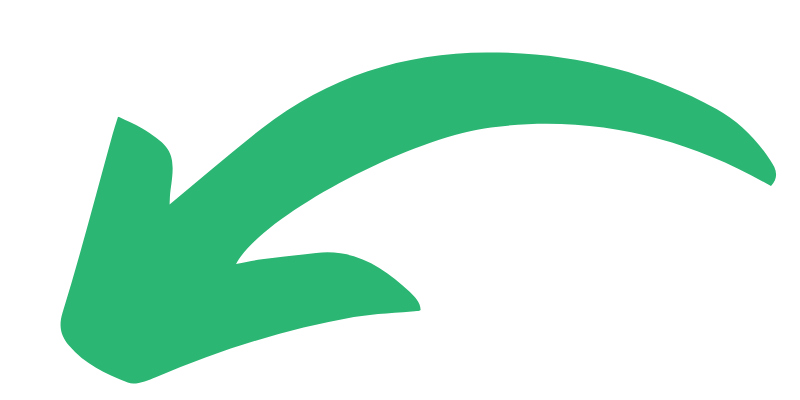It's not the same thing
Simple isn’t always easy, but in the context of your career, it’s worth it
Would you rather* be called smart or brilliant?
How about amusing or hilarious?
Good or exceptional?
The first options aren’t bad, but the second ones are preferred, right?
That’s because while those pairs of adjectives are technically synonyms, they’re not exactly the same.
Hey, I get it.
As a professional writer, I’m a self-described “word girl” who delights in expanding her vocabulary and understanding the subtle nuances of words, even the seemingly ordinary ones.
For instance, though we tend to use the words “simple” and “easy” interchangeably, they have slightly different meanings:
Simple refers to being uncomplicated and easily understood; easy means something achieved without great effort.
Despite their similarities, simple isn’t always easy; it takes discipline and a conscious and intentional effort to make something less confusing, complex, and difficult to understand or do.
But in the context of your career, it’s worth it.
When you do the hard work of simplifying things for your intended audience—your boss, partner, client, prospect, or potential employer—you make it easy for them to do business with you.
Here’s how:
Start with clarity
Simplicity begins with clarity. If you don’t or can’t clearly articulate why others should work with you, you force them to do the work (i.e., make it hard for them) to decipher the mystery that is you.
(Spoiler alert: They probably won’t bother.)
Guessing equates to confusion, and when you confuse, you lose—potential opportunities, clients, projects, promotions, and partners.
When you’re clear, everything becomes easier. You eliminate guesswork, and people understand what you offer, your value, what differentiates you, and how you can help them. Clarity helps others know, like, and trust you.
Don’t rely on clever
It’s tempting to be witty in your latest campaign or LinkedIn headline, but if it leaves your audience scratching their heads, you’re in trouble. Clarity trumps cleverness every time. You maximize the power of your words by simplifying them.
Lose unnecessary complexity
There’s a reason the K.I.S.S. (“keep it simple, stupid”) method endures. Originating as a design principle by the U.S. Navy in 1960, it states that most systems work best if they are kept simple rather than made complicated.
Practically speaking, this means dropping flowery language, industry acronyms, and buzzwords. (You won’t impress people with them, and you risk alienating the very people with whom you’re hoping to connect.) Swap jargon for plain language to increase the odds of you and your message being favorably received—and understood.
Keep it brief and focused
The hard truth: Multiple-page emails are rarely simple (or read), and long, meandering presentations ensure that you’ll lose your audience’s attention—and the opportunity to connect.
When you try to cover too much ground, you risk becoming scattered. Rather than ramble on and on (which signals that you’re unorganized and unsure of yourself), invest time to eliminate extraneous material and stick to one central theme, which helps you become more “user-friendly” and easier to understand.
Stay in your wheelhouse
Are you a “Marketing Guru/Engineer/Entrepreneur/Monkey Trainer/Bitcoin Investor/(Fill In The Blank)”?
Bad news: you’re way too complicated and confusing.
There’s nothing wrong with having multiple interests, but a Jack- or Jill-of-all-trades is often perceived as an unfocused master of none. Instead, put your talents to their highest and best use by leading with your primary offering. Pick a lane, and go deep, consistently sharing your wisdom in your zone of genius, making it easy for others to understand your value and how you can help them.
Another simple (but not always easy) way to progress in your career?
Making the most of your choices.
ICYMI, in my recent Forbes article, I shared three ways how.
Want to better a more resilient, happier, virtuous, and wise leader?
As it turns out, the Stoics’ ancient wisdom is surprisingly relevant for the modern professional.
In my latest Forbes article, I share five Stoic leadership tenets you should apply to your career.
Shine on,
Amy
P.S. When I’m not writing this newsletter or explaining why simple ≠ easy, I’m a social media ghostwriter. (Yep, that’s a thing). I help founders craft their stories to communicate and connect better, magnifying their reach and impact. (Think personal branding and thought leadership.) Learn more here.
P.P.S. Now that we’re inbox-exclusive (love that about us!), why not follow my musings across the interwebs on Forbes, LinkedIn (be sure to hit the 🔔 in the top right corner of my profile to get notified when I post!), Twitter, and Instagram too?
And if you really want to get meta, subscribe to my weekly LinkedIn newsletter, m o m e n t u m, featuring insights to help you maintain positive motion and continually grow your career. As a bonus, it links to ALL of my content for the week, so you’ll never miss a thing and keep the momentum going! (See what I did there? 😉)
P.P.P.S. You have great taste in newsletters, my friend—thanks for subscribing! You are subscribed, right? If not, let’s fix that; click the blue button.
While you’re at it, be sure to check out the archives to catch up on previous issues, and feel free to share this one with your friends using the button below. Or better yet, invite them to join our Illuminate Me tribe!
*Normally, this lead-in makes me think of the “Would you rather…?” game and two equally horrible choices. For instance, Would you rather be a tissue or toilet paper? (That’s a hard pass on both!) or Would you rather know how you will die or when you will die? (Neither, please!) But, thankfully, I’m not asking you any of those.







